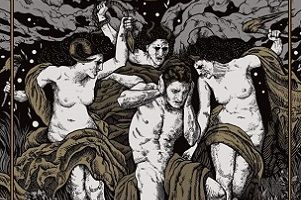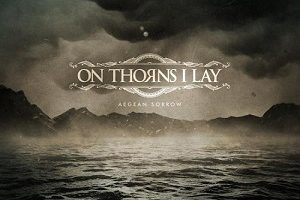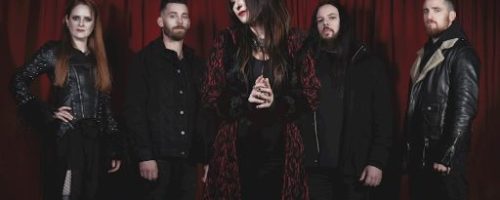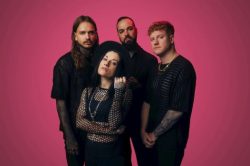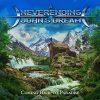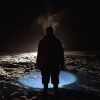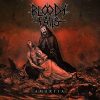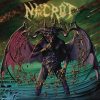On Thorns I Lay – Ageless Sorrow
Tuesday, 18th February 2020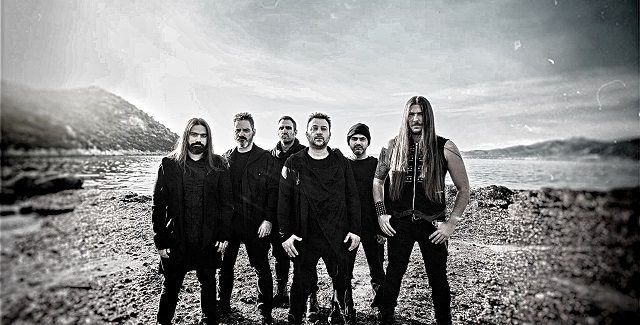
It’s almost a prerequisite for a melodic death-doom band to make a severe right turn at some point during their career. Take a look at Paradise Lost, My Dying Bride, Anathema, Katatonia and even Moonspell — they all, at one point or another, abandoned their core sound for new, sometimes less-traveled, but always creatively rewarding pastures. And, frankly, it would be pretty boring if these bands continued to release albums in the same vein as Gothic, Turn Loose the Swans, Serenades, Brave Murder Day and Irreligious. That’s not why any of these bands got in the game, and it certainly isn’t why Greece’s On Thorns I Lay did either.
Formed in 1995 just as the Greek extreme metal scene was starting to take shape with Rotting Christ and SepticFlesh, On Thorns I Lay opted for a slower, more atmospheric approach on their first several albums, with 1999’s majestic Crystal Tears emerging as arguably their magnum opus for that particular period. But, like the bands we mentioned above, the Greeks got restless and went into experimental directions by the early 2000s, then went on an extended hiatus. The band reemerged in 2015 with Eternal Silence and rightfully returned to form on 2018’s Aegean Sorrow, which has been surpassed by Threnos, a burrowing, dark affair laced with melody and orchestral arrangements. Here to catch us up with regards to On Thorns I Lay is guitarist Chris Dragamestianos. Read on…
Dead Rhetoric: You are one of the longest-running Greek doom bands. Now that you’ve hit 25 years as a band, have you done any reflecting?
Chris Dragamestianos: Yes. We started together with other great bands from the early ’90s Greek scene [with] Rotting Christ and SepticFlesh and we are very proud that now, after exactly 28 years of existence, we’ve released our best album. Threnos.
Dead Rhetoric: How does it make you feel when you see other bands using the elements you were bold enough to try on Drama and Crystal Tears?
Dragamestianos: Back in the days we were exploring, “innovating,” you could say, the atmospheric doom-death sound. Albums like the above-mentioned influenced others — this is how music evolves. Of course, we are honored but we still continue to explore musical paths but [are] very focused on our personal sound and songwriting. It’s very important not only to play well but to sound unique. Nowadays, this is very difficult.
Dead Rhetoric: What has kept On Thorns I Lay going? You had a 12-year layoff between 2003 and 2015, but since then, the band has been as steady and productive as ever.
Dragamestianos: In the early 2000s, we lost our musical identity and finally our will to play, as music for us is only art and not a way to pay our bills. So now with the return back to our roots, we are back stronger.
Dead Rhetoric: Do you see your last three albums as sort of “throwbacks” to your early days?
Dragamestianos: Yes I could say the last two as Eternal Silence was recorded in 2004 with the old members and we got it out as we were preparing our comeback with Aegean Sorrow.
Dead Rhetoric: I remember when you went through your stylistic changes around the Egocentric album. Do you think that was a necessary step in your progression? Any regrets for taking such a risk?
Dragamestianos: I, personally, did not like this change in our sound then. I am sure that this hurt most of our fans. These albums, you cannot say they are bad albums — they kept the melancholic atmosphere, of course, in another way. We are still getting messages from people saying how much they loved what we were trying to do back then. As I told you, personally speaking, if I could turn back time, I would not release them, but this is something only theoretic.
Dead Rhetoric: As for Threnos, it’s crushingly heavy, yet combines your trademark melodies. Was that a point of emphasis when writing the album?
Dragamestianos: Nothing really. We just play music the way we like to hear it as first of all, we are fans of this genre. Threnos is a perfect choice for someone who wants to hear atmospheric heavy, doom dark stuff.
Dead Rhetoric: Are there any common lyrical themes running through the album? What does the Threnos title represent?
Dragamestianos: Threnos represents our journey in this life, a dark long journey through unknown sometimes strange paths. Often, we all have been standing in front of crossroads. The direction you take, you never know where it will lead you. Every track of the album reflects different aspects of life. Of course, it’s influenced by ancient Greek mythology and tragedy.
Dead Rhetoric: And, finally, what are your plans for 2020?
Dragamestianos: Many, many live shows everywhere!











